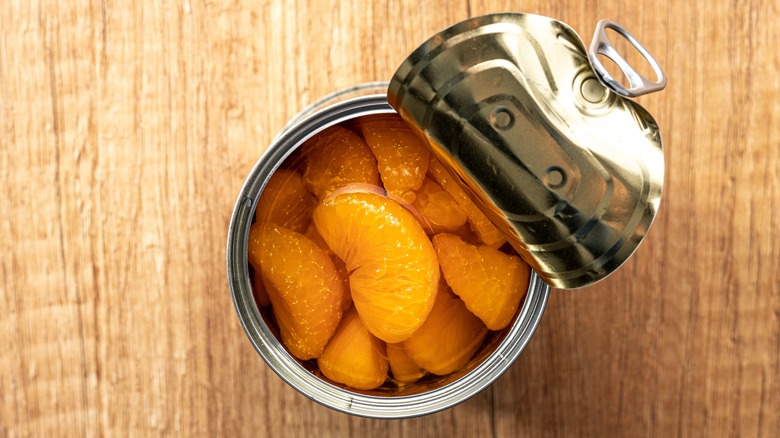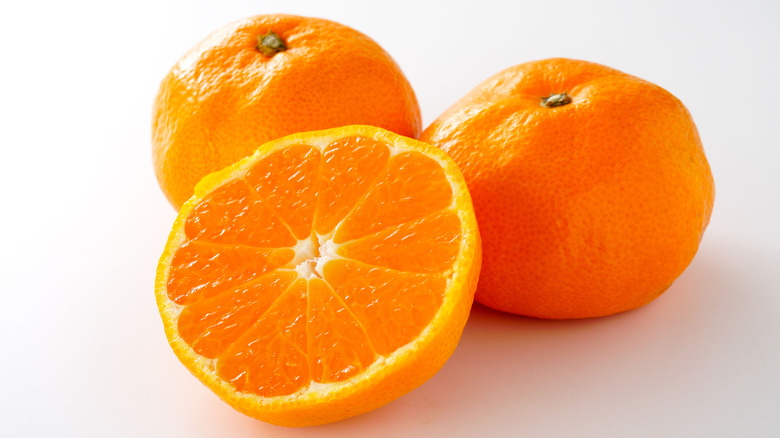Canned Mandarins Are Most Commonly Made With This Variety
Have you gotten your daily dose of fruit today? According to the USDA, everyone should aim to eat plenty of fruit each day. While the exact quantity depends on every individual, American adults in general should strive to eat about 2 cups of fruit per day. While it can be difficult to ensure that you're consuming the recommended amount of fruit every day, enjoying canned fruit can make it easier.
If you find yourself never able to get to the grocery store or you're constantly watching your fresh fruit rot before your eyes, it may be time to start purchasing canned goods. While many assume that canned fruit is immediately less healthy than fresh fruit, this is not necessarily the case. From canned pears to peaches to cherries, there's a myriad of tasty, nutritious, and convenient options for you. And, mandarin oranges may just be one of the best canned options out there.
According to Live Eat Learn, enjoying canned mandarin oranges is an easy way to get your daily dose of fruit — just make sure they're not canned in sugar. The site notes that you should read the cans to ensure that "no added sugar" is printed on the label.
However, while you may have your preference when it comes to picking out your favorite mandarin variety, there's likely only one type that winds up in your grocery store's cans.
You likely won't see this citrus outside of a can
From peelable clementines to juicy tangerines to the trendy sumo citrus, there are plenty of great mandarins to choose from when looking for healthy options to quench that sweet-and-sour craving. However, if you do opt for a canned mandarin option, satsuma mandarins are most likely the citrus preserved in your grocery store's cans, according to Ask The Food Geek.
There are likely a few reasons for this. As The Spruce Eats notes, this type of fruit has very delicate skin and fragile flesh. Because of this, satsuma mandarins can become bruised when being shipped or handled too much. This is likely one of the reasons that this variety is much better suited to being canned rather than shipped whole to grocery stores, especially since they originate in Japan.
Aside from their fragility, these sweet fruits are also conveniently always seedless, making them a great easy snack, as per The Farmers' Almanac. This sweet and tangy variety is sure to please you when layered on salads, mixed into baked goods, or eaten straight from the can.

